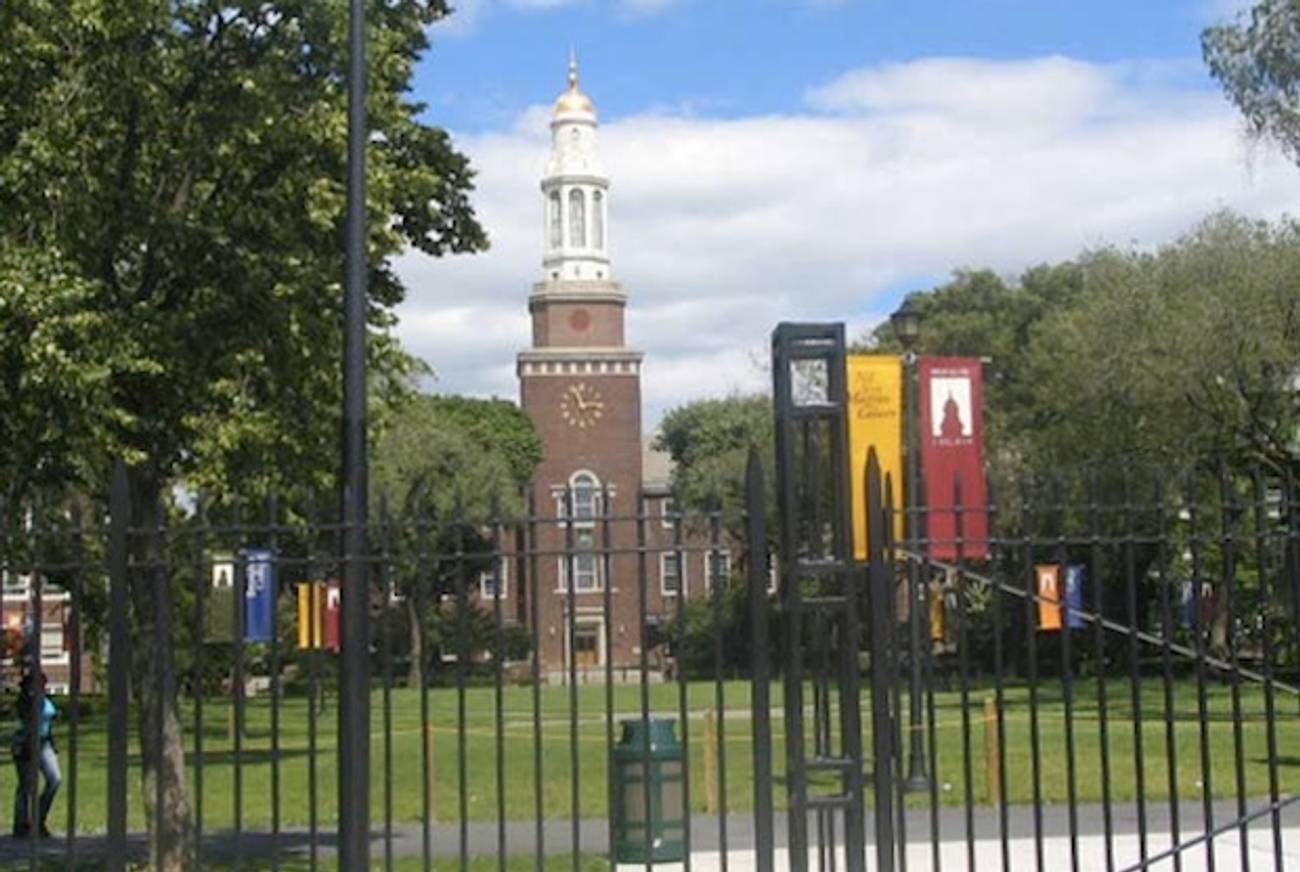NY Times, MSNBC Whitewash BDS
BDS opposes a two-state solution, but you wouldn’t know it from the media




As you’ve no doubt heard, a controversial panel about the Boycott, Divestment and Sanctions movement (BDS) against Israel is set to take place tomorrow at Brooklyn College. Because the event received the sponsorship of the college’s political science department, it has evoked harsh criticism from prominent Jewish intellectuals and New York City elected officials, some of whom have called for the panel to be cancelled, or for the political science department to withdraw its imprimatur.
This week, both MSNBC’s Up with Chris Hayes and the New York Times editorial board publicly defended the panel’s right to convene and the political science department’s right to sponsor it. I happen to agree with their conclusions, if not necessarily their rationales. But in introducing the BDS movement to their audiences, both of these respected media outlets dramatically misrepresented its stated aims and implicit goals, whitewashing the movement’s radicalism.
Here’s how Hayes opened his segment:
A group of Brooklyn College students organized an event to discuss the Boycott, Divestment and Sanctions movement, which is an attempt by activists here and around to world to pressure Israel to end its settlements and occupation through organized boycotts, international sanctions and divestments modeled on those directed at South Africa during apartheid.
Yesterday, the New York Times editorial board offered a similar characterization in defending the panel, claiming it would feature “two speakers who support an international boycott to force Israel to end its occupation of the Palestinian territories.” The only problem here is that this is not, in fact, the entirety of what the BDS movement advocates. Don’t take it from me—just read their website.
On its “Call for BDS” page, the movement outlines three official goals for boycotts, divestment and sanctions against Israel. The first is the one acknowledged by Hayes and the Times: “Ending its [Israel’s] occupation and colonization of all Arab lands and dismantling the Wall.” The second: “Recognizing the fundamental rights of the Arab-Palestinian citizens of Israel to full equality.”
And then there’s the third: “Respecting, protecting and promoting the rights of Palestinian refugees to return to their homes and properties as stipulated in UN resolution 194.”
This radical goal goes completely unmentioned by both Hayes and the Times, giving their audiences the false impression that the BDS movement merely seeks a non-violent way to end Israeli occupation and implement a two-state solution. But in fact, BDS’s own materials and proponents oppose the very existence of the State of Israel as a Jewish state, and demand the return of 5 million Palestinians to the country, which would effectively abrogate its Jewish character.
This is antithetical to the two-state solution, the only solution to the Israeli-Palestinian conflict accepted by majorities on both sides and the international community. As President Obama has put it, “if we’re going to achieve a two-state solution … the Palestinians are going to have to recognize that the right of return as they’ve understood it historically would extinguish Israel as a Jewish state, and that’s not an option.”
And you don’t have to be Alan Dershowitz to recognize that the BDS movement seeks the elimination of the world’s only Jewish state—or even J Street, which vehemently opposes it. Try Norman Finkelstein, no one’s idea of Israel’s best friend, who has spelled out the extremism of the BDS movement and forcefully rejected it. In a recorded interview worth watching in full, Finkelstein explains:
We have to be honest, and I loathe the disingenuous. They [BDS] don’t want Israel. They think they are being very clever. They call it their three tier: We want the end of the occupation, the right of return, and we want equal rights for Arabs in Israel. And they think they are very clever because they know the result of implementing all three is what, what is the result? You know and I know what the result is: there’s no Israel!
A general principle: when Alan Dershowitz and Norman Finkelstein manage to agree on something, it’s probably true. Like all advocates of a peace accord between Israel and the Palestinians, they understand that the BDS movement is actively undermining such reconciliation.
As the mirror version of the right-wing Greater Israel movement which denies the Palestinian right to self-determination, BDS seeks a one-state solution that denies the Jewish right to self-determination. Indeed, Omar Barghouti, one of the Brooklyn BDS panelists, is on record saying that an end to occupation and settlement would not end the call for BDS, that he opposes the two-state solution, and that the right of return is the movement’s “foremost demand.” As he put it in 2001, Israel “was Palestine, and there is no reason why it should not be renamed Palestine.”
Chris Hayes and the New York Times are right to defend the Brooklyn College panel and call for open debate over the merits of BDS. But that conversation starts with correctly acknowledging what the movement actually believes, rather than misrepresenting it as something far less extreme than it is.
***
UPDATE: Chris Hayes, being a mensch, has acknowledged that he should have noted the more radical elements of the BDS agenda in his segment. Still no word from the New York Times editorial board, but we will keep you posted.
Yair Rosenberg is a senior writer at Tablet. Subscribe to his newsletter, listen to his music, and follow him on Twitter and Facebook.